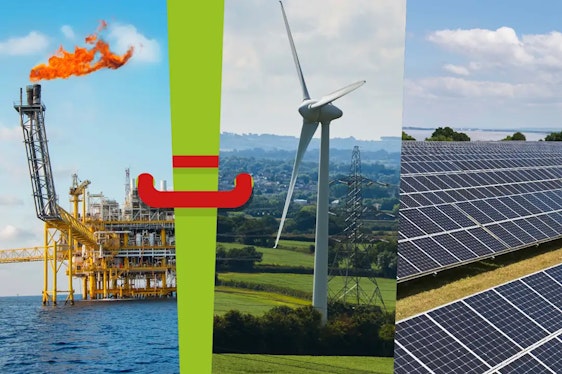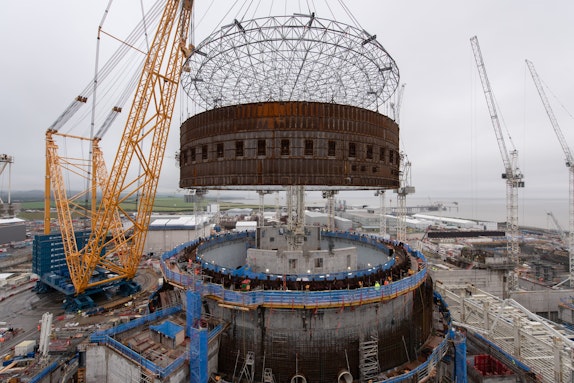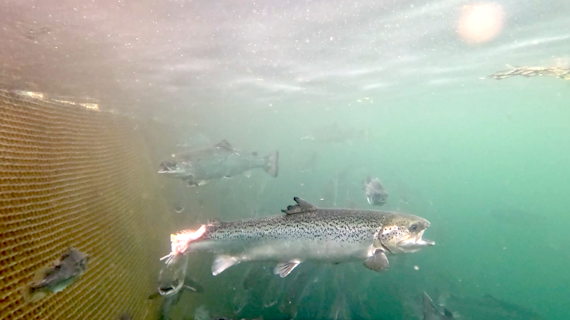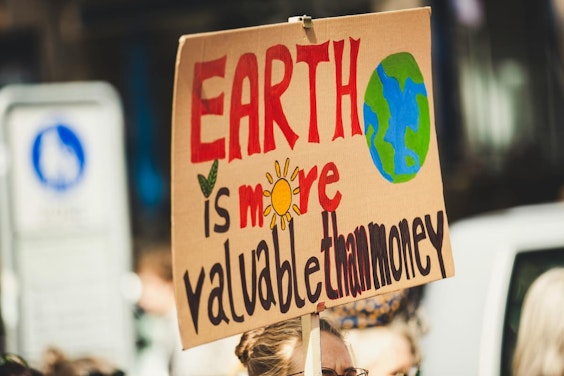
Breaking the Link Between Fossil Fuel and Renewables
High energy bills persist because our market ties green energy prices to fossil gas costs. Breaking this link could finally deliver cheaper, fairer, stable electricity.
When we bought Forest Green Rovers in 2010, we weren’t just looking for a club to back on match days. We saw an opportunity - to turn a football club into a living, breathing example of how sustainability can change the world.
Fast forward 13 years, and FGR is now the greenest football club on the planet. Since 2011, we’ve slashed the carbon footprint of our home games - cutting emissions per fan from 2.96 tonnes to just 0.78 tonnes in the 2022/23 season.
We’ve done this by focusing on three core areas - energy, food, and transport. And we’ve done it without compromising the fan experience - which is why FIFA named us Europe’s top club for fan engagement in 2020.
Energy was the first thing we tackled - it’s cheaper, cleaner, and just makes sense. We switched to 100% clean energy from Ecotricity’s windmills - one of which is just a kilometre from the ground.
We also generate power on-site. Our solar array at the gates and panels on the EESI Stand provide about 20% of our annual electricity needs. Our LED scoreboard and pitch-side advertising boards are all powered by a solar-charged battery.
And for the emissions we can’t cut, we offset through the UN’s verified carbon scheme. Offsetting isn’t perfect, but the UN’s approach ensures companies measure and reduce their emissions first - which is exactly what we’ve done.
Food is huge in football, and we knew we had to get it right. So we didn’t just go vegan overnight - we phased it in over three seasons. First, we ditched red meat, then white meat, then fish, cheese, and milk.
There was pushback at first - as you’d expect. But now, our catering is award-winning, it’s grabbed international attention, and - most importantly - fans love it.
The biggest reason? We haven’t sacrificed taste. Opposing fans still chant “Meat, meat, meat!” at us sometimes, but that’s football for you. It’s all part of the fun.
Transport is one of the biggest sources of emissions for a football club - fans and players clock up a lot of miles. So we tackled it head-on.
We set up a park-and-ride service.
Built bike parking for cycling fans.
Installed EV charging stations at the ground.
Partnered with the local bus company so there’s always a bus waiting after the final whistle - even if a match goes to extra time.
For staff and players, we switched from diesel minibuses to electric ones. We’d love to use an electric bus for away games, but there’s a snag - no charging points at rival stadiums yet.
We’ve also teamed up with Bolt to encourage walking to games. Fans have a collective target of 1.5 billion steps per season - hitting it unlocks donations for community projects, like more lighting on walkways to make walking to the ground easier and safer.
We didn’t stop at energy, food, and transport - we’ve taken every opportunity to make the club greener.
Our pitch is 100% organic, and we harvest rainwater from beneath it for reuse.
We’ve ditched single-use plastics and gone zero to landfill.
We introduced a reverse sugar tax and now don’t sell sugary drinks at all.
We’ve done everything we can to green up The New Lawn - but now, it’s time for something bigger.
FGR is about to break new ground - literally. We’re building Eco Park, the world’s greenest football stadium, made entirely out of wood.
It will hold 5,000 fans, be easier to reach, and sit in the middle of a biodiversity haven—with restored canals, wetlands, and wildlife corridors.
But Eco Park isn’t just a stadium - it’s a blueprint for the future. Alongside the stadium, we’re creating a hub for green businesses - generating £150 million a year for the local economy.
It’s about more than just football. It’s about showing that sport can drive real, systemic change.
Forest Green Rovers proves that football can be a force for good - on and off the pitch.
We’re showing the world that being green doesn’t mean compromising on success, quality, or experience. Whether it’s renewable energy, plant-based food, or sustainable transport, we’re proving that change is possible - and it works.
And now, with Eco Park on the horizon, we’re taking things to the next level.
High energy bills persist because our market ties green energy prices to fossil gas costs. Breaking this link could finally deliver cheaper, fairer, stable electricity.
Sizewell C is an overpriced, delayed, and risky nuclear project we don’t need. Renewables are faster, cheaper, and safer—yet households will pay billions for Sizewell before it even generates electricity.
Salmon farming is a toxic, unsustainable mess—polluting oceans, killing wild fish, and fueling disease. It’s time to shut it down before it wipes out marine ecosystems for good.
Airport expansions are an economic and environmental disaster worsening carbon emissions, pollution, and public health while benefiting only the rich. We need investment in green industries, not more runways fuelling climate breakdown.


